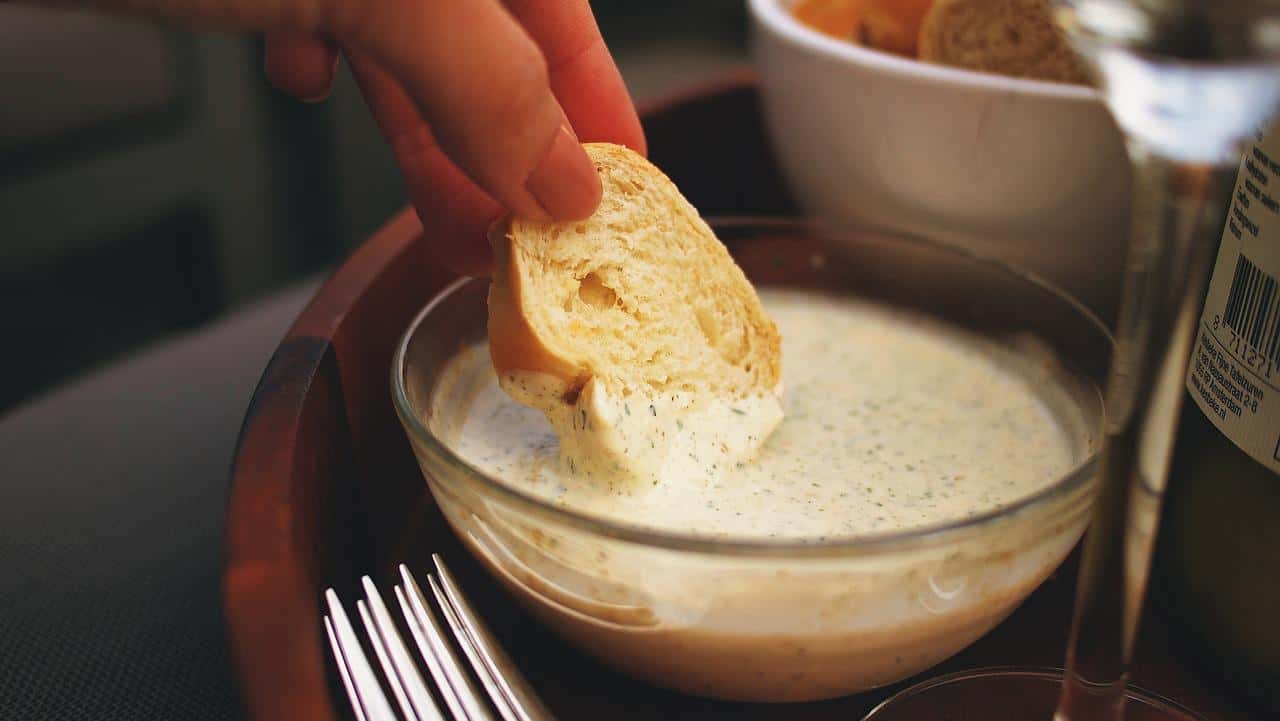Aioli, a creamy emulsion, is made up of olive oil, garlic, lemon juice, salt, and pepper. Lemon juice, a key ingredient, lends the aioli a tangy flavor and adds bright acidity.
Making aioli is quite simple and you can do it at home as most of the ingredients can usually be found in your pantry. And, in the event that you don’t have lemon juice, you can still make a zesty aioli by simply substituting the lemon juice.
The lemon juice in aioli can be substituted with another acidic ingredient, such as lime juice, white wine, apple cider vinegar, malt vinegar, or even orange juice. Lemon zest or lemon extract may also work as a substitute for lemon juice.
What can I substitute for lemon juice when making aioli?
Aioli is a sauce typically found in northwest Mediterranean cuisine. The name aioli means “oil and vinegar”, in Catalan, Provençal and Italian. Some may confuse aioli and mayonnaise or believe that aioli is simply a garlicky mayonnaise. These two sauces are not the same. Although they are both creamy emulsions, they have distinctly different flavor profiles.
Some people may be allergic or sensitive to lemon juice. If you love the taste of aioli but cannot stomach lemon juice, you are in luck! There are substitutes that you can use when making aioli that will work equally well.
Some of the substitutes on this list may alter the taste of the aioli, albeit only slightly. Many professional chefs and home cooks use these substitutes to alter the aioli recipe while still delivering the same zesty taste profile.
1. Lime juice
We’ve put lime juice first on the list for a reason. Lemon juice and lime juice are very close in flavor profile and acidic levels. These two ingredients can be substituted one-to-one. Lime juice and lemon juice also have a very similar PH-balance.
When using lime juice, keep in mind, that although these two ingredients have a similar taste, they are not identical. The lime juice may impart a slightly altered taste to the aioli. However, the final product will still have the same citrus/tart taste.
If you prefer, you could add cilantro to the aioli to completely transform the flavor of the aioli while maintaining the tart/cutris profile. This recipe explains how to prepare a lime-cilantro aioli.
2. Vinegar
The second option on our list is vinegar. Vinegar is a great substitute for lemon juice as it is also tart and acidic. Be sure to use white vinegar and not dark vinegar.
The key point to keep in mind is that you should use the appropriate amount of vinegar when substituiting. The last thing you want is for the vinegar to overpower the aioli.
In cases where only a small amount is required, such as for an aioli recipe, vinegar makes a great substitute. You can opt for apple cider vinegar in your aioli recipe. Alternatively, you could use malt vinegar.
3. White wine vinegar
White wine vinegar is simply white wine that has been oxidized and fermented. This process turns the white wine into an acidic with a fruity profile. White wine vinegar has a similar bitterness and acidity as lemon juice, making it a perfect substitute. In addition, it adds some sourness to the aioli similar to that of lemon juice.
You should be able to substitute these ingredients on a one-to-one basis. And, this product is used in many recipes and chances are that you may already have it in your kitchen.
4. Orange juice
You may think that orange juice cannot possibly be a substitute for lemon juice in an aioli recipe, but the truth is that it can. Not only that, but you could alter the taste of the aioli with the orange juice to the point that it may still be slightly tart but slightly sweet as well.
In fact, orange juice is a great substitute for lemon juice and can be substituted one-to-one in this recipe. The benefit of orange juice as an ingredient in aioli is that it is less tart, less acidic, and just a little bit sweeter than lemon juice.
And, because you will only need a few drops, the taste difference won’t be that dramatic.
5. Lemon zest and lemon extract
These two ingredients are not the same thing. Both of these ingredients work well in recipes where the lemon taste forms a primary flavor. In the case of aioli, the lemon flavor is what gives the aioli depth.
Both frozen and dried lemon zest will work very well as a concentrated version of lemon juice. In addition, both the lemon zest and lemon extract will lend the aioli a lemon taste and acidic taste.
When using lemon extract as a substitute for lemon juice, keep in mind that the extract is extremely concentrated and you may only need a drop or two, depending on how much aioli you
6. Dry white wine
White wine can be substituted for lemon juice due to its citrus flavor profile. Keep in mind that you should opt for a dry white wine and not a sweet white wine. Some great examples are Sauvignon Blanc or piano grigio.
These ingredients can be substituted in equal parts.
Is lemon juice a key ingredient in aioli?
No. Originally, aioli was simply made by emulsifying egg yolk, olive oil, salt, and pepper. Lemon juice may be added to the mixture to impart a specific acidic flavor to the sauce. Aioli does not have to be made with lemon juice or a substitute. But it does add a deep flavor to the sauce.
What is aioli used for?
Aioli is predominantly used as a condiment. It goes great with almost any type of food. For example, aioli can be used as a dipping sauce for crab cakes, French fries, or over fish tacos.
You could put aioli on a burger, over a steak, or as a spread on sandwiches. You can use aioli in the same way you would use traditional mayonnaise.

